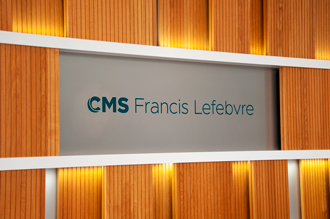
Authors
In response to the unprecedented situation we are currently experiencing, the French government has opened the floodgates on public spending. Don’t the emergency economic measures, although necessary at first, risk further harming the financial situation?
The sudden and unprecedented health crisis (and resulting economic crisis) we are currently experiencing almost immediately resulted in the total, or sometimes partial, shutdown of many companies’ activity, regardless of their size or the scope of their activities.
Stopgaps were quickly put in place by companies thanks to French government aid, including short-time working, deferral of tax and social security payments, deferral of loan repayments, rent negotiations, etc. One means of assistance, which have attracted applications from a large number of companies, are cash loans backed by a 70% to 90% government guarantee. This solution is available until 31 December 2020 to a large number of companies (excluding SCIs, with the exception of SCCVs and real-estate investment companies or undertakings, and credit institutions and financing companies).
Eligibility for the government-guaranteed loan (PGE – Prêt Garanti par l’Etat) is not automatic and assumes an upstream analysis of the economic and financial situation by the lending bank(s). Since an order of 6 May 2020, a PGE can now be granted to companies which have been the subject of collective proceedings (safeguarding or receivership) initiated since 1 January 2020.
Although a large number of PGEs have been granted in the past few weeks (more than €50 billion as of 30 April 2020), it appears that a number of companies have already had their applications refused. The Médiation du Crédit (French credit ombudsman) is currently seeing a rise in complaints following these refusals. Banks are therefore being asked to review their position, without this in any way affecting the bank's decision.
It is very possible – depending on the development of the health crisis and its consequences, which are as yet unclear – that in the coming weeks and months a number of companies will apply for this PGE (which has a deadline of 31 December 2020).
If their applications are refused, many companies may have no other choice but to initiate collective proceedings due to insolvency, particularly since in most cases debt repayments will resume from the autumn, often incorporating arrears. Even in that situation, it is important for the company to prepare for receivership, particularly to allow for disposal of the business and safeguarding of a large proportion of jobs. Without such preparation, there would be a risk of the company being placed directly in court-ordered liquidation, including the immediate dismissal of all staff, the piecemeal sale of assets and the enforcement by banks of directors’ guarantees.
When the PGE is granted by one or more banks, this cash inflow provides a real boost to companies facing unavoidable overheads, even given the waiting times involved. These loans, granted at “cost price” by banks but increased by the guarantee premium, include a 12-month grace period with a clause giving the borrower the option to unilaterally decide the repayment period of the loan at the end of the first year, up to a maximum of five additional years.
In most cases, the guarantee provided by the government is 90%, given that PGEs are available to companies with turnover of less than €1.5 billion and employing fewer than 5,000 people.
The perverse effect of the PGE is that companies will then face a debt wall.
Indeed, PGEs (for amounts up to 25% of the borrower's gross turnover) will consume a very large portion (and often all) of the available cash-flow. Restarting the business will generate an increasing need for working capital which will have to be financed, but be undermined by companies’ difficulties (or even inability) to take on debt.
The debt/EBITDA ratio is currently between 4 and 4.5 on average. Once the PGE repayment holiday expires, it is set to reach 6.5 or even 7 according to the most optimistic forecasts. Which banks will agree to lend under those conditions? Will the government have to provide new guarantees? And if the government’s guarantees are enforced, as some fear, due to default by the borrowing companies, then public debt will continue to spiral. All the more so since in the event of default by the borrowing company, the government risks being supplanted by preferred creditors, unless safeguards are put in place (e.g. by granting a more senior ranking or authorising banks to obtain additional collateral).This outlook, which is concerning to say the least, will lead the government to limit its risks, necessarily to the detriment of companies, their shareholders and their creditors.
As a result, business leaders will need to take strategic steps as soon as possible to avoid finding themselves insolvent by autumn 2020, especially at the end of the 12-month repayment holiday. This post-Covid-19 scenario risks generating another critical situation for our companies. The watchword remains anticipation of difficulties.
Insight: impacts of the Covid-19 outbreak
Our law firm provides you with legal assistance to understand all Covid-19 (Coronavirus) impacts on your business. Discover our special Insight below.
Find more about our law firm:
Our law firm is a leading international business law firm. Its deep roots, unique positioning and highly recognised expertise enables it to deliver innovative, high value-added solutions in tax, business, corporate and labour law.









